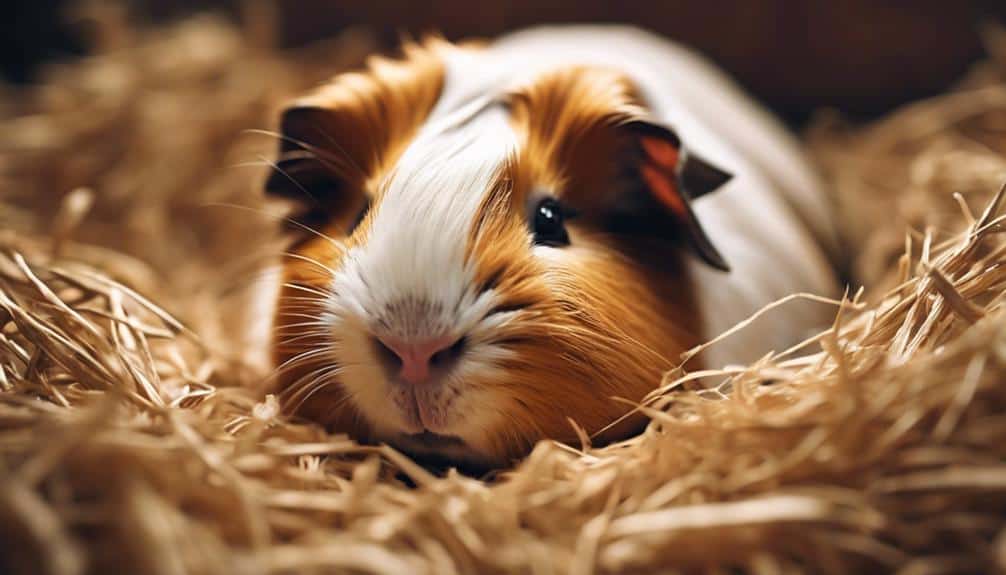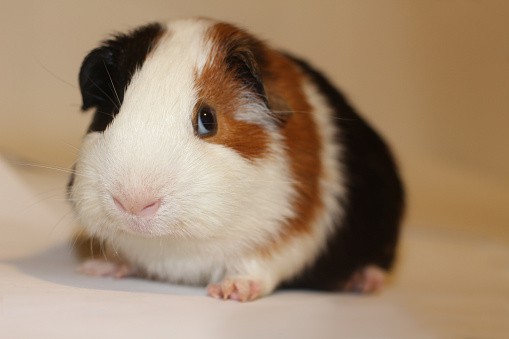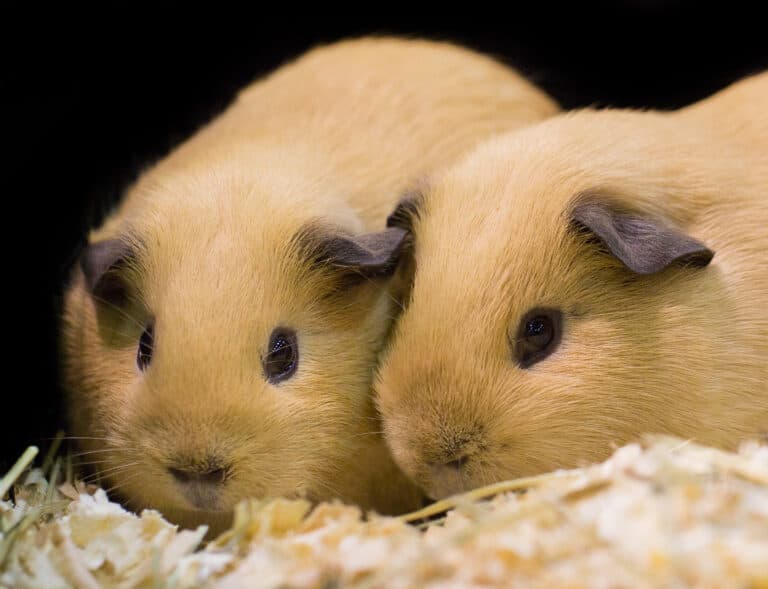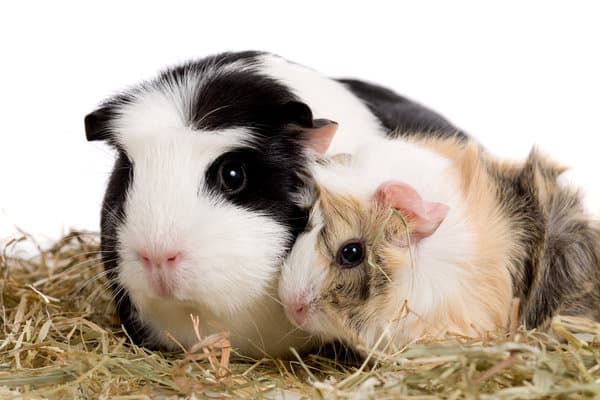How Do Guinea Pigs Sleep: A Guide to Their Restful Nights
When it comes to understanding how guinea pigs sleep, it’s fascinating to observe their behavior and see how they adapt to their surroundings.
Have you ever wondered why these adorable creatures seem to be on different sleep schedules than us?
Let’s explore the intriguing world of guinea pig slumber and uncover the secrets to their restful nights.
Guinea Pig Sleep Patterns
Guinea pigs exhibit unique sleep patterns characterized by short naps throughout the day and night, totaling about 4 to 6 hours of sleep daily. As crepuscular animals, they’re most active during dawn and dusk, aligning their sleep cycle with these times.
Due to their prey animal nature, many guinea pigs sleep with their eyes open to stay alert to potential predators. In their natural habitat, guinea pigs have adapted to take these short naps rather than having continuous sleep like humans. This pattern allows them to rest while remaining vigilant.
Understanding their sleeping habits is critical in providing a safe and comfortable environment for these small pets. By acknowledging their need for short, restful nights and considering their instinctual behaviors, we can make sure that guinea pigs feel secure and well-rested in captivity.
Understanding Sleep Needs
As we explore the subject of understanding sleep needs in guinea pigs, it becomes apparent that their unique sleep patterns play an essential role in maintaining their health and well-being.
- Guinea pigs require between 4 to 6 hours of sleep daily to support their overall health and well-being, emphasizing the importance of adequate rest for these small creatures.
- Their tendency to take short naps throughout the day, rather than long stretches of sleep, allows them to recharge and maintain alertness during their active periods, showcasing their adaptive sleep habits.
- Factors such as age and environment can influence the sleeping patterns of individual guinea pigs, highlighting the need to provide a suitable and comfortable sleeping environment for these pets to make sure they get the rest they require to thrive.
Understanding the sleep needs of guinea pigs is vital for their care and happiness. By recognizing and accommodating their unique sleep habits, we can help these adorable creatures lead a healthy and fulfilling life.
Creating a Sleep-Friendly Environment
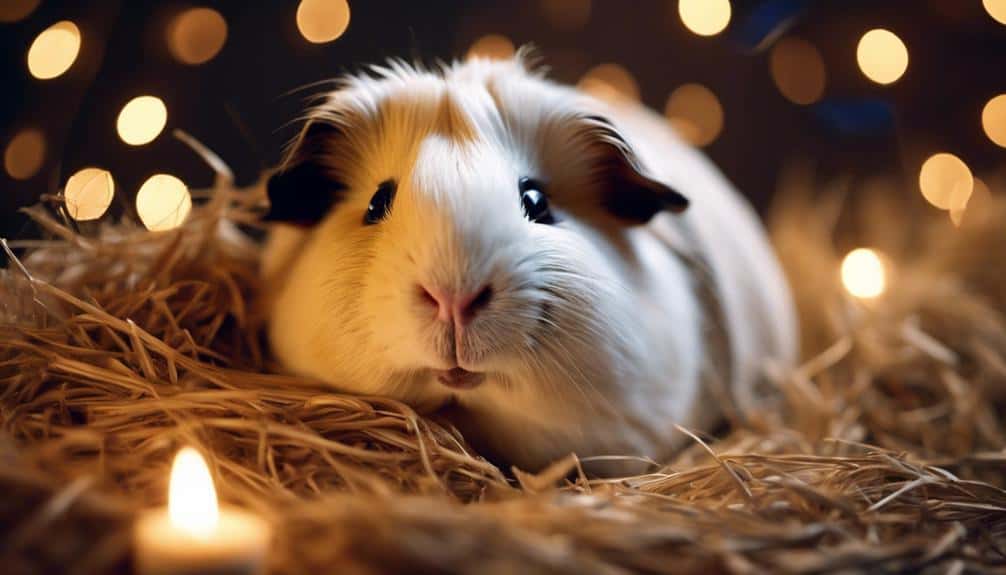
Creating a perfect sleep environment for your guinea pig involves making sure a safe and comfortable setting conducive to peaceful rest. When setting up your guinea pig’s cage, prioritize comfortable bedding options such as paper-based or fleece bedding to provide a cozy sleeping surface.
Make sure the cage is placed in a quiet area of your home, away from loud noises and disturbances, to create a serene sleeping environment. Proper ventilation is essential for maintaining air quality and regulating temperature within the cage, contributing to a suitable sleep environment.
By offering a sense of security through a peaceful sleeping area, guinea pigs can fully relax, trust their surroundings, and sleep with their eyes closed. This sense of security is important for promoting restful sleep, which is essential for their overall health and well-being.
Common Sleep Issues
To confirm top health and well-being for your guinea pig, it’s important to address common sleep issues that may impact their overall quality of rest. Here are some common sleep issues that could affect your guinea pig’s sleep patterns:
- Essential: Guinea pigs are social animals that love companionship. When they feel lonely or stressed, it can disrupt their sleep patterns. Providing quality time and a secure environment for your guinea pig can help alleviate these issues.
- Vital: Health issues such as pain, discomfort, or illness can interfere with a guinea pig’s ability to sleep well. Regular health check-ups and a healthy diet are essential for maintaining a healthy guinea pig that can enjoy restful sleep.
- Critical: Noise, light, and temperature changes can disturb a guinea pig’s sleep. Creating a calm and consistent environment with suitable bedding and hiding spots is crucial for promoting better sleep quality in your furry friend.
Expert Tips for Better Sleep
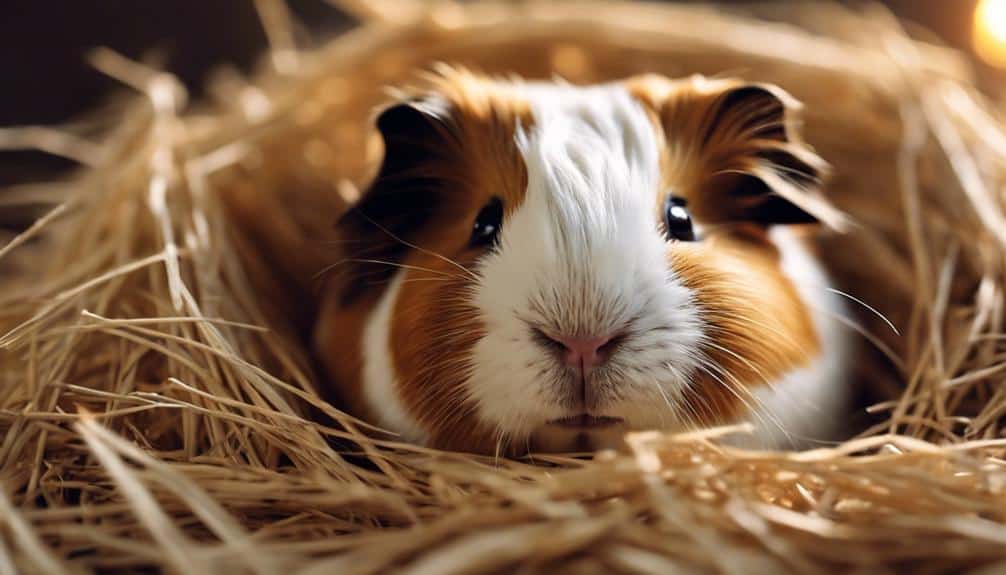
Establishing a consistent bedtime routine for your guinea pig can greatly enhance their sleep quality and overall well-being. To make sure your guinea pig sleeps well, make sure to provide the correct sleeping environment. Guinea pigs are crepuscular animals, meaning they’re most active during dawn and dusk; thus, offering a dark and quiet sleeping space can mimic their natural habitat and encourage restful nights.
Additionally, provide a cozy sleeping area with soft bedding to improve their sleep. Avoid odd sleeping habits by maintaining a constant temperature in their sleeping area to prevent disturbances. As responsible guinea pig owners, engaging in gentle and calming interactions before bedtime can help your pets sleep better.
Conclusion
To sum up, ensuring that your guinea pig gets a good night’s sleep is essential for their health and well-being.
By understanding their natural sleep patterns, providing a comfortable sleeping environment, and addressing any sleep issues that may arise, you can help your furry friend rest peacefully.
Remember, a well-rested guinea pig is a happy guinea pig, so take the time to create a sleep-friendly environment for them to thrive.
Sweet dreams to your little pet!

